Unlocking the Power of Online Therapy for Emotional Growth
In today’s fast-paced world, developing strong emotional skills and effective coping mechanisms is essential for mental well-being. Online therapy has emerged as a flexible, accessible, and evidence-based approach to fostering emotional resilience. From personalized sessions with licensed professionals to innovative self-help tools, virtual platforms provide a comprehensive pathway for emotional growth tailored to individual needs.
Understanding How Online Therapy Enhances Emotional Skills and Coping Mechanisms
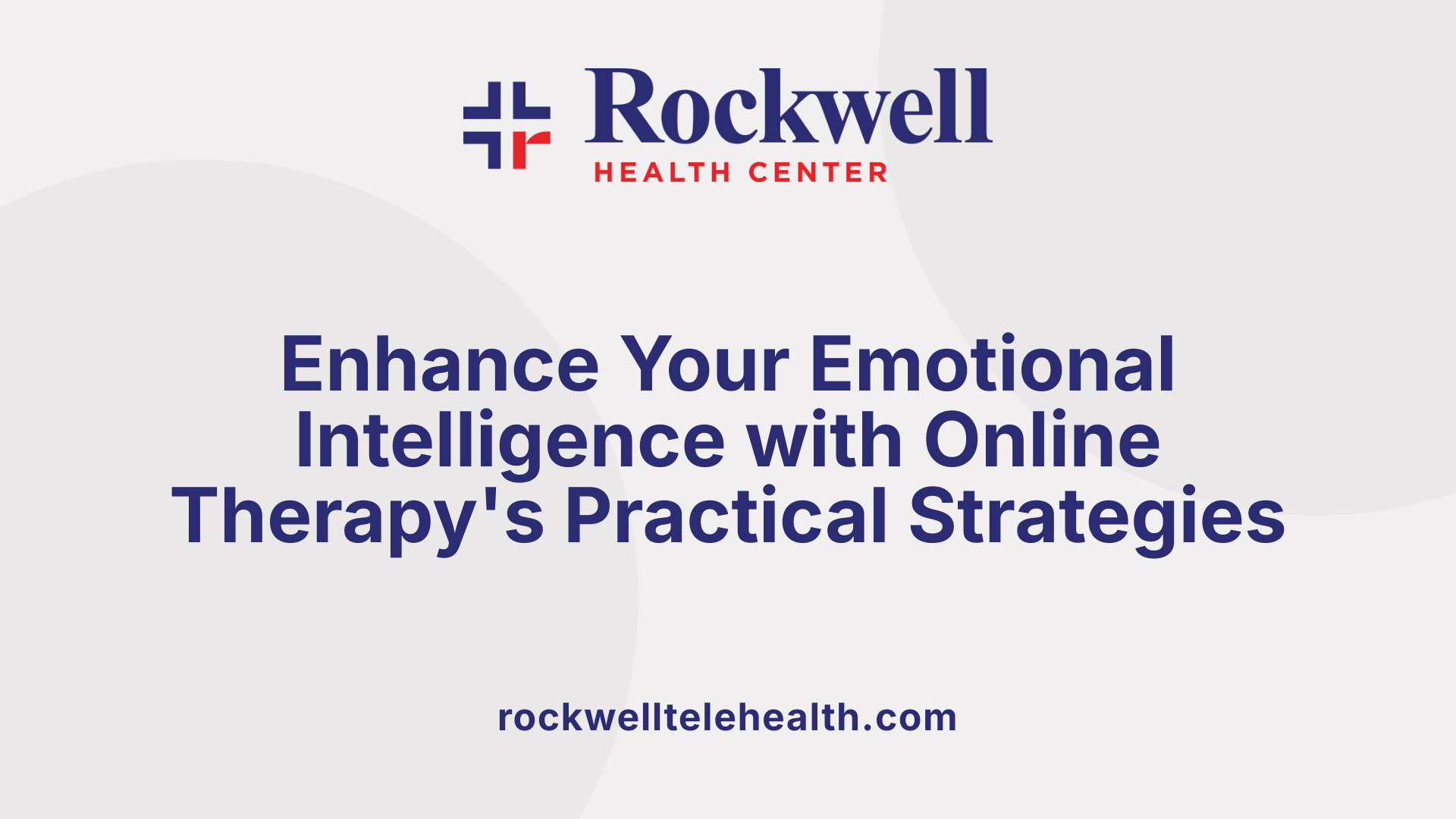
How does online therapy work to improve emotional skills and coping mechanisms?
Online therapy offers a flexible and accessible way to develop emotional skills and coping strategies. It provides a safe, confidential environment where individuals can explore their feelings and behaviors with the guidance of licensed professionals. The platform’s design—using text, audio, or video sessions—makes therapy more convenient, encouraging consistent engagement.
Therapeutic approaches like cognitive-behavioral therapy (CBT) and dialectical behavior therapy (DBT) are central to online treatment. These evidence-based methods focus on teaching practical skills such as mindfulness, emotional awareness, distress tolerance, and interpersonal effectiveness. For example, CBT helps clients reframe negative thoughts, while DBT emphasizes managing intense emotions and improving relationships.
Online therapy enables personalized treatment plans tailored to each person’s unique needs. Therapists work with clients to set goals, identify emotional triggers, and understand underlying fears or beliefs that influence their emotional responses. This individualized approach fosters self-awareness and emotional regulation.
The convenience of scheduling sessions at suitable times and the assurance of privacy make online therapy a conducive environment for learning and practicing new skills regularly. Over time, these skills help clients better manage stress, reduce emotional reactivity, and build resilience.
By combining expert guidance with practical techniques, online therapy supports emotional growth and mental well-being. It empowers people to navigate life’s challenges with improved emotional intelligence, healthier relationships, and a stronger capacity to cope with everyday stressors.
How Online Therapy Pathways Support Emotional Resilience and Skill Development
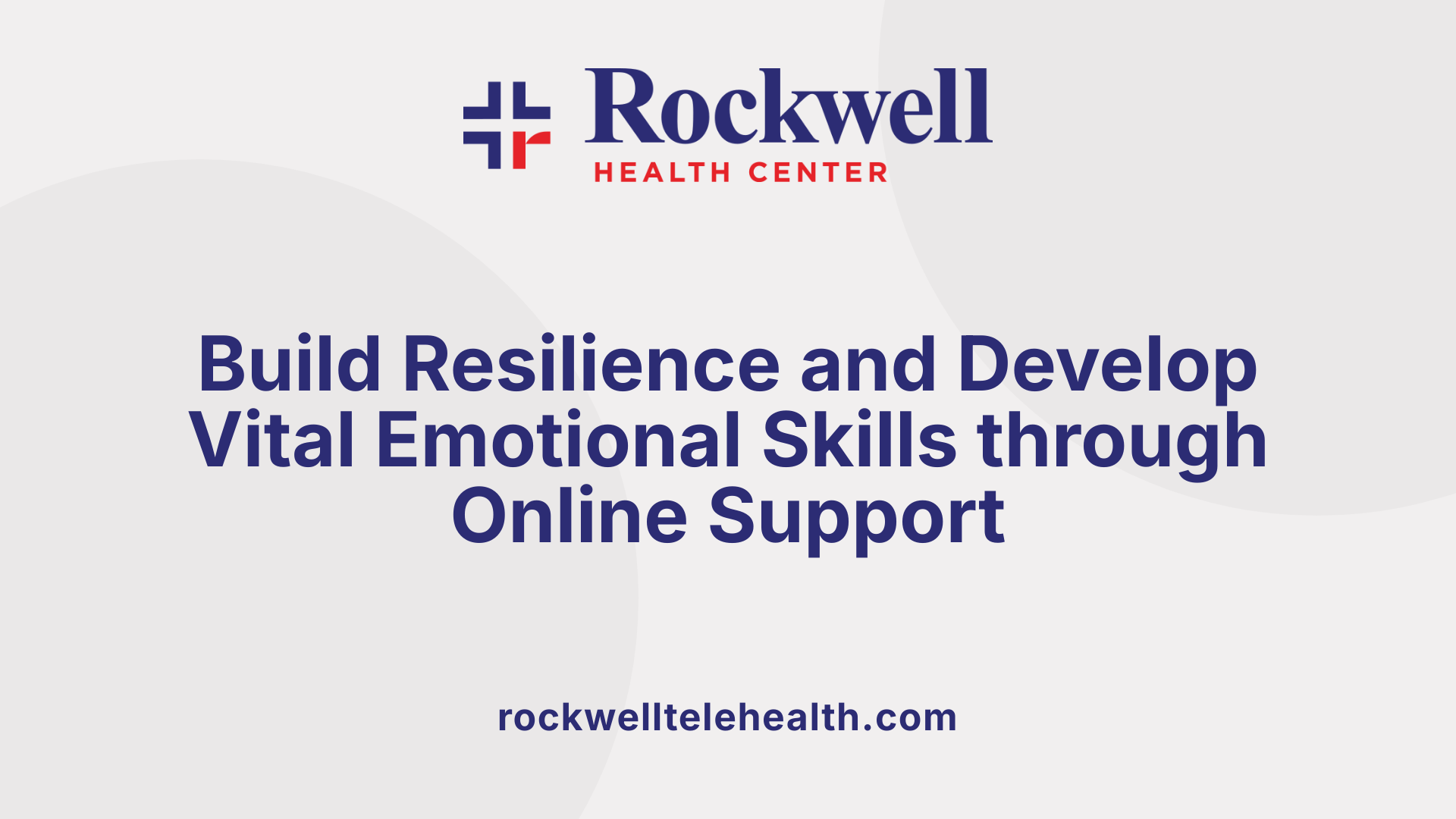
How can online therapy pathways aid in developing emotional resilience and emotional skills?
Online therapy platforms like Cerebral, BetterHelp, Talkspace, and AbleTo provide tailored, evidence-based interventions that help individuals strengthen their emotional resilience. These programs are designed around personalized care plans that adapt to each person's unique needs and mental health challenges.
Most platforms include structured programs that incorporate regular assessments to monitor progress. These assessments help both clients and therapists understand the effectiveness of interventions and guide adjustments for better outcomes. Continuous evaluation ensures that the support remains relevant and responsive.
A core element of these programs involves skill-building exercises rooted in Cognitive Behavioral Therapy (CBT). CBT techniques teach clients how to identify and challenge negative thought patterns, develop healthier emotional responses, and improve coping skills. For example, emotional regulation exercises, mindfulness practices, and problem-solving strategies are commonly employed.
Practical tools such as the 'Charge Up Plan' offered by some platforms serve as actionable strategies that clients can use daily. These tools help manage stress, reduce emotional reactivity, and promote a sense of control over emotional responses.
Online therapy pathways facilitate ongoing support through various channels like messaging, video, and phone calls. This continuous contact allows clients to share concerns at any time, receive guidance, and stay motivated.
A notable advantage of these programs is their ability to foster resilience by encouraging clients to recognize and modify unhelpful thoughts, emotions, and behaviors. Regular interactions with therapists and tailored exercises cultivate emotional strength, adaptability, and self-awareness.
Platforms often include practical resources such as self-help guides and growth paths focused on emotional skills. These resources complement therapy sessions and provide clients with tools they can practice independently.
Access to same-day appointments, medication management, and therapy across all 50 states make these pathways highly accessible. Consistent engagement with mental health support over time builds a foundation for lasting emotional resilience.
Overall, online therapy pathways combine scientific, evidence-based methods with practical tools and continuous support, empowering individuals to develop emotional resilience, improve emotional regulation, and thrive despite life's challenges.
| Platform | Features | Supporting Evidence | Special Tools |
|---|---|---|---|
| Cerebral | Personalized therapy, medication management, structured programs | Based on CBT, proven effective | 'Charge Up Plan', goal tracking |
| BetterHelp | Wide range of therapists, flexible scheduling | Effective for depression, anxiety | Self-help resources, skill modules |
| Talkspace | Messaging, video, medication, assessments | Supported by studies on online therapy efficacy | Mood tracking, progress reports |
| AbleTo | Virtual coaching, therapy, self-care tools | Reduces depression and anxiety symptoms | Growth paths, stress management exercises |
This integration of innovative, evidence-based strategies and accessible tools helps individuals strengthen their emotional resilience and develop vital emotional skills for overall well-being.
Approaches Such as DBT for Emotional Regulation and Coping Strategies
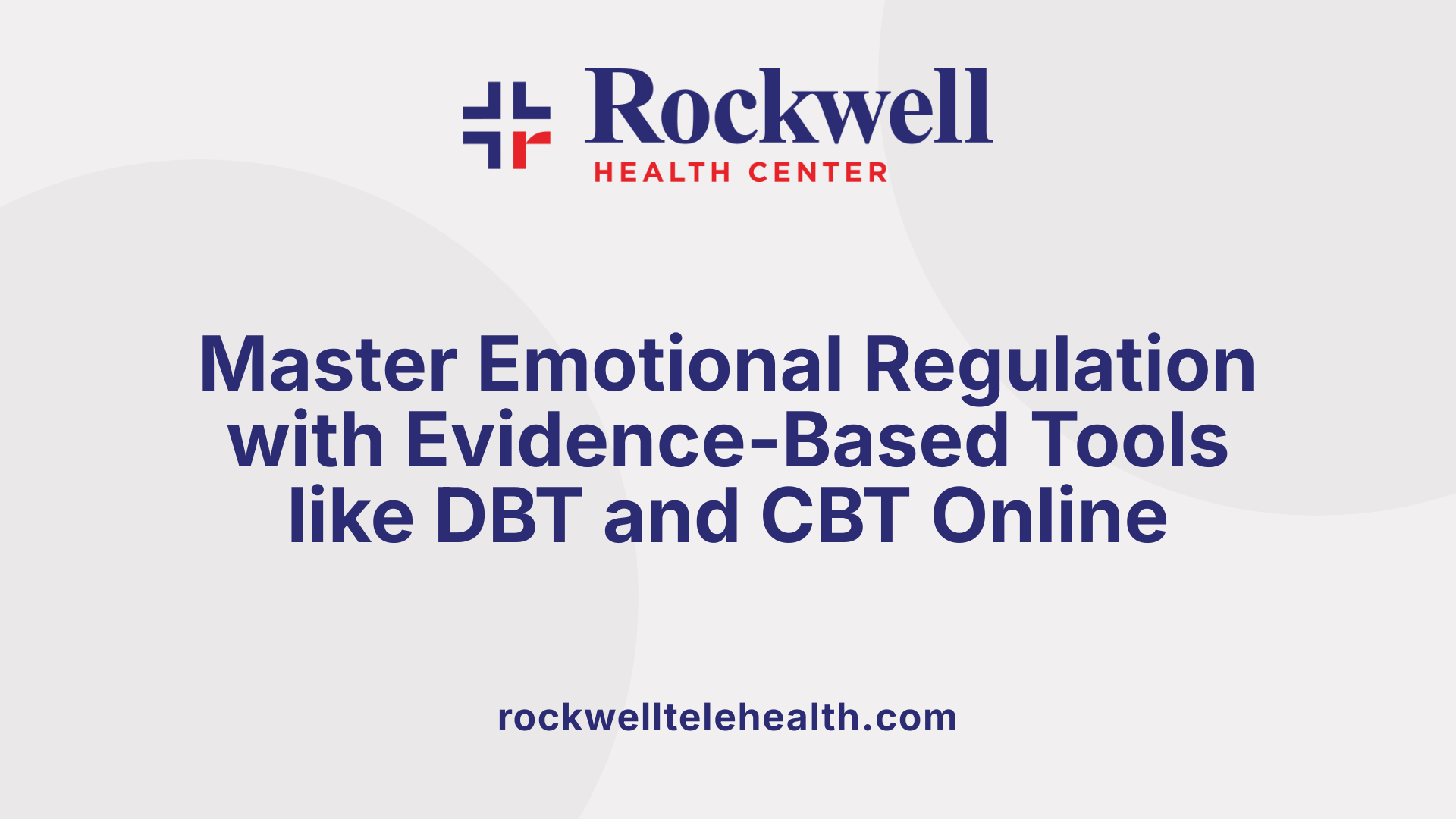
What approaches, such as Dialectical Behavior Therapy (DBT), are used online to focus on emotional regulation and coping strategies?
Online mental health platforms significantly utilize therapeutic approaches like Dialectical Behavior Therapy (DBT) to help individuals improve their emotional regulation and develop effective coping skills. DBT is an evidence-based therapy that combines structured lessons, practical exercises, and real-time support to teach core emotional skills.
Structured lessons and exercises in DBT
Digital DBT programs often include comprehensive modules that guide users through various skill sets. These lessons are designed to be interactive, allowing users to learn and practice techniques at their own pace. Exercises may include mindfulness practices, distress tolerance strategies, and emotional regulation techniques, all aimed at reducing impulsivity and harmful behaviors.
Core skills: mindfulness, emotion regulation, distress tolerance, interpersonal effectiveness
DBT emphasizes four main skill areas:
- Mindfulness: Helping individuals focus on the present moment and observe their thoughts and feelings without judgment.
- Emotion Regulation: Teaching methods to identify, understand, and modify intense emotional responses.
- Distress Tolerance: Providing techniques for enduring crises without resorting to harmful actions, including distraction and radical acceptance.
- Interpersonal Effectiveness: Enhancing communication skills, asserting needs, and maintaining self-respect in relationships.
Online platforms like Talkspace incorporate these skills into their therapy sessions, providing users with practical tools to manage difficult emotions.
Interactive components: individual therapy, skills group, digital exercises
Engagement in online DBT typically involves various interactive components:
- Individual therapy sessions: One-on-one virtual sessions with trained therapists allow personalized guidance and support.
- Skills group sessions: Virtual group meetings offer peer support and practice opportunities for developing new skills.
- Digital exercises: Apps and online tools provide homework and practice tasks, reinforcing learning outside of sessions.
These components facilitate a comprehensive approach that addresses emotional challenges in a flexible, accessible manner.
Research on telehealth DBT efficacy
Research supports the effectiveness of telehealth DBT in treating conditions such as Borderline Personality Disorder (BPD), depression, and anxiety. Studies indicate that online DBT can achieve outcomes comparable to traditional in-person therapy.
One notable study found significant reductions in harmful behaviors and emotional dysregulation among participants receiving telehealth DBT. The convenience, privacy, and comfort of online delivery make it especially appealing for individuals with barriers to attending in-person therapy.
Overall, combining structured lessons, expert guidance, and interactive learning makes online DBT a powerful and accessible tool in managing emotional regulation and building resilience.
| Aspect | Description | Additional Notes |
|---|---|---|
| Therapy Mode | Real-time video, audio, messaging | Flexible, on-demand support |
| Core Skills | Mindfulness, emotion regulation, distress tolerance, interpersonal effectiveness | Focused on practical application |
| Delivery Components | Individual sessions, skills groups, digital exercises | Complements learning and practice |
| Effectiveness | Comparable to in-person DBT | Supported by clinical research |
| Suitable For | Borderline Personality Disorder, depression, anxiety | Proven to reduce harmful behaviors |
This approach underscores the importance of adaptable, evidence-based therapies that help individuals develop vital emotional coping mechanisms.
Benefits of Online Therapy in Enhancing Emotional Resilience and Regulation
What are the benefits of online therapy in strengthening emotional resilience and emotional regulation?
Online therapy provides a range of advantages that make developing emotional resilience and regulation more accessible and effective. It is highly accessible, flexible, and often more affordable than traditional in-person therapy, breaking down barriers for individuals limited by geographical distance, physical disabilities, or stigma surrounding mental health issues.
Many platforms use evidence-based approaches like Cognitive Behavioral Therapy (CBT) and mindfulness techniques, which have been scientifically validated to reduce symptoms of depression, anxiety, and other emotional challenges. These methods help individuals identify and challenge negative thought patterns, manage stress responses, and foster healthier emotional responses.
The convenience of digital sessions allows clients to engage consistently, practicing emotional regulation strategies in their real-life environments. This continuous practice enhances their ability to cope with emotional stresses outside of therapy sessions, leading to long-term resilience.
Moreover, online platforms often incorporate tools for progress monitoring and assessment, enabling therapists to tailor interventions to the individual’s evolving needs. This personalized approach ensures that treatment remains relevant and effective over time.
Confidentiality and privacy are paramount in online therapy. Secure encryption and privacy protocols are standard, allowing clients to share openly without concern over data breaches or judgments. This safe environment encourages honest communication, which is crucial for developing emotional regulation skills.
Another benefit is the increased access provided to diverse populations, including those in remote or underserved areas, or individuals with mobility challenges. This broad accessibility means more people can get the emotional support they need to build resilience and manage their emotions effectively.
Overall, the combination of accessibility, evidence-based methods, ongoing monitoring, privacy assurances, and inclusivity makes online therapy a powerful tool for strengthening emotional resilience and emotional regulation skills, fostering healthier, more adaptable individuals.
Virtual Programs for Emotional Skill Development: Therapy, Coaching, and Self-Care Tools
What virtual mental health programs are available for emotional skill development, including therapy, coaching, and self-care tools?
A broad array of online programs and services are accessible today to help individuals develop emotional skills, manage mental health, and build resilience. These range from professional therapy services and coaching to self-guided tools and educational courses.
One prominent example is the online courses offered by organizations like CASEL (Collaborative for Academic, Social, and Emotional Learning). CASEL provides a free, comprehensive online course titled "An Introduction to Social and Emotional Learning." This course includes engaging activities, downloadable workbooks, and facilitation guides suitable for educators, parents, and community organizations seeking to promote emotional and social skills.
For children aged 4-11, platforms such as Emotionalabcs.com offer evidence-based, interactive tools designed specifically for young learners. These include activities focused on emotion recognition, breathing exercises for calming, educational games, and real-life scenarios aimed at enhancing emotional regulation and social understanding.
In addition to these platforms, numerous university-led online courses are available on sites like Coursera and edX. These courses cover a wide array of topics, including emotional intelligence, conflict resolution, resilience-building, and stress management. They are suited for learners of various ages and offer flexible options for learning at different paces.
Emerging technological advancements have also enriched virtual emotional skill development. Virtual reality (VR) tools create immersive environments that foster empathy, enhance emotional regulation, and improve interpersonal skills. For example, VR simulations can place users in social scenarios that require managing emotions and navigating relationships, making interventions more engaging and effective.
Furthermore, online therapy platforms such as BetterHelp, Talkspace, and AbleTo offer professional support through various digital formats—text, audio, or video—helping individuals develop emotional control, coping mechanisms, and mental health strategies with licensed therapists and counselors.
Finally, coaching services focus on helping individuals cope with everyday challenges, stress, and emotional regulation. These personalized programs often include structured activities, goal-setting, behavioral techniques, and ongoing support to foster emotional growth.
Overall, the virtual space provides diverse, accessible programs tailored to different needs, age groups, and learning styles. As technology advances, these programs continue to evolve, making mental health and emotional skill development more engaging, effective, and widely available.
Impact of Recognized Awards and Expert Endorsements
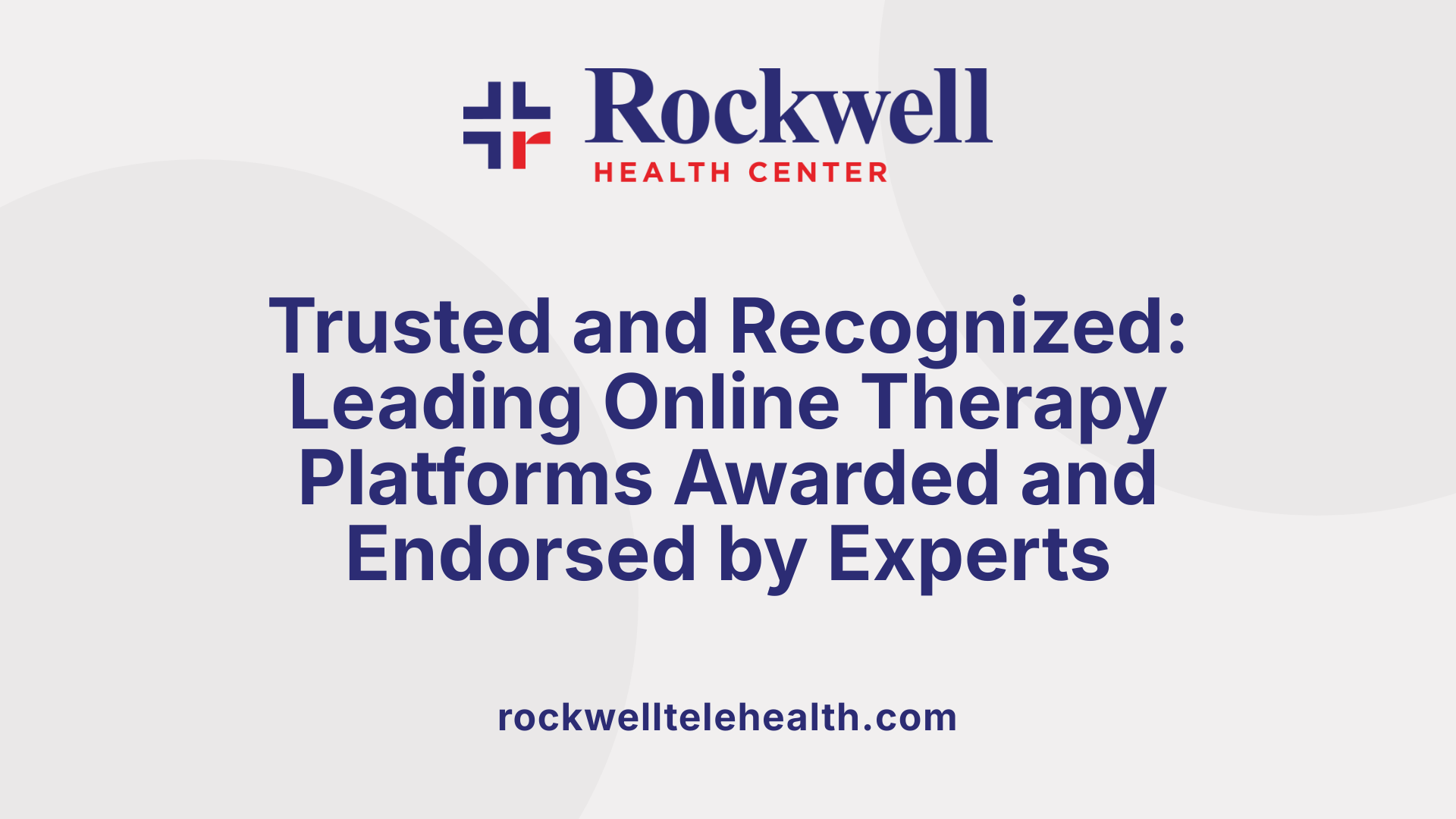
How do awards like the Stanford Medicine X Healthcare System Design Innovation Award influence the reputation of online therapy platforms?
Winning awards such as the Healthcare System Design Innovation Award from Stanford Medicine X significantly bolsters the credibility and trustworthiness of platforms like 7 Cups. These awards are typically bestowed based on rigorous evaluations, innovation, and positive impact in healthcare system design. When an online therapy service receives such recognition, it demonstrates its commitment to advancing mental health support through innovative, high-quality solutions.
Awards serve as a mark of excellence, encouraging users to consider these platforms as reputable options for emotional and mental well-being support. They often highlight the platform’s ability to integrate effective technology with compassionate care, which reassures users about the safety and efficacy of online mental health services.
What role do expert endorsements, such as those from Hannah Owens of Verywell Mind, play in shaping public perception?
Expert endorsements from recognized figures like Hannah Owens, a licensed social worker and the Mental Health Editor for Verywell Mind, greatly impact the perceived trustworthiness of online therapy platforms. Owens’s extensive clinical experience and her role in overseeing detailed reviews and testing provide a layer of professional credibility to platforms like Talkspace, BetterHelp, and others.
Her endorsements are based on thorough evaluations, including how effective, accessible, and user-friendly these services are. When such endorsements emphasize positive features—such as the use of evidence-based therapies like CBT and DBT, the availability of licensed professionals, and the overall quality of service—they guide potential users toward making informed choices. Owens’s insights also help dispel common misconceptions about online therapy, emphasizing its effectiveness and the importance of accessibility.
How do awards and professional opinions collectively enhance the trustworthiness of online therapy platforms?
Awards from reputable organizations and endorsements by seasoned mental health professionals work together to validate online therapy services. They highlight a platform’s dedication to innovation, professionalism, and patient-centered care.
This collective recognition can influence consumer confidence, especially for those hesitant about digital mental health support. When users see that a platform has received prestigious awards and is endorsed by recognized experts, it often reassures them of the quality, safety, and confidentiality of the services offered.
What are some notable awards and endorsements received?
| Recognition Type | Award/Endorsement | Description |
|---|---|---|
| Healthcare System Design Innovation Award | Stanford Medicine X | Recognizes excellence in healthcare innovation and system design in online mental health solutions. |
| Recognition from Mental Health Experts | Hannah Owens, Verywell Mind | Endorses platforms based on clinical expertise and thorough testing, emphasizing effectiveness. |
| Additional Recognitions | Multiple awards for innovation and safety | Highlights the ongoing commitment of platforms to quality care and technological advancement. |
How does this recognition impact user choices?
Recognition through awards and expert endorsements reassures users that they are accessing a trustworthy, effective, and well-supported mental health platform. This confidence influences more individuals, including those in remote or underserved areas, to seek help from reputable online services. Ultimately, these recognitions foster a broader acceptance, encouraging the growth of accessible mental health support worldwide.
Supporting Evidence From Research Studies and Expert Reviews
What research supports the effectiveness of online therapy approaches?
Numerous studies have demonstrated that online therapy is a proven and effective method for mental health treatment. For example, research published in the National Library of Medicine highlights that cognitive-behavioral therapy (CBT), when delivered via the internet, shows comparable results to traditional face-to-face therapy for conditions like major depression, anxiety disorders, obsessive-compulsive disorder (OCD), and stress. These studies report significant improvements in symptoms and overall quality of life for users.
Moreover, specialized therapies such as Dialectical Behavior Therapy (DBT) delivered online have been found effective in equipping individuals with crucial coping skills, particularly for emotional regulation, substance use disorder, and PTSD. The effectiveness of these methods is grounded in rigorous scientific research, confirming that structured online interventions can lead to meaningful, lasting change.
How does online therapy compare to traditional in-person therapy?
Research supports that online therapy can be just as effective, if not more accessible, than in-person sessions. A study published in "Telemedicine and e-Health" confirmed that online therapy approaches like CBT are comparable to traditional face-to-face methods regarding symptom reduction and treatment satisfaction.
Additionally, online services offer significant advantages in convenience, affordability, and privacy. Users can participate from a secure, private space at any time, which often increases engagement and adherence to treatment plans. For individuals living in rural or underserved areas, or with mobility challenges, online therapy offers an accessible alternative to in-office visits.
Some research suggests that online therapy can even result in higher patient satisfaction due to the flexibility and comfort it provides. Many participants cite reduced travel time, lower costs, and a greater sense of safety as reasons for preferring digital interactions.
What does client satisfaction and outcome data indicate?
Client feedback and outcome data consistently show high satisfaction levels with online mental health services. Platforms like BetterHelp, Talkspace, and AbleTo have received recognition from experts and award bodies for their innovative, effective, and accessible approaches.
For example, Hannah Owens, a licensed social worker and Mental Health Editor at Verywell Mind, has reviewed multiple platforms, noting that well-trained, licensed therapists using diverse therapeutic approaches often lead to positive outcomes.
Studies indicate that users report improvements in emotional regulation, coping skills, and overall mental health. Notably, reductions in depression symptoms average around 61%, while anxiety symptoms decrease by approximately 57% with programs grounded in cognitive-behavioral strategies.
How significant are these findings?
The data strongly suggest that online mental health interventions are not only comparable in efficacy to traditional therapy but also offer unique benefits that may enhance treatment engagement. As levels of mental health issues rise globally, online therapy's proven effectiveness signifies an essential expansion of accessible, evidence-based care.
| Study/Source | Therapy Type | Findings | Notable Outcomes |
|---|---|---|---|
| National Library of Medicine | CBT (online) | Effective for depression, anxiety, OCD | Symptom improvement, quality of life |
| Telemedicine & e-Health | Online CBT vs. In-person | Equivalent results | Similar symptom reduction, satisfaction |
| Verywell Mind reviews | Various platforms | High client satisfaction | Improved emotional skills, symptom relief |
This compilation of research and expert assessments underscores the growing trust in online mental health services as a valid, reliable alternative to traditional therapy, with substantial evidence supporting their broader adoption.
Privacy, Confidentiality, and Ease of Access
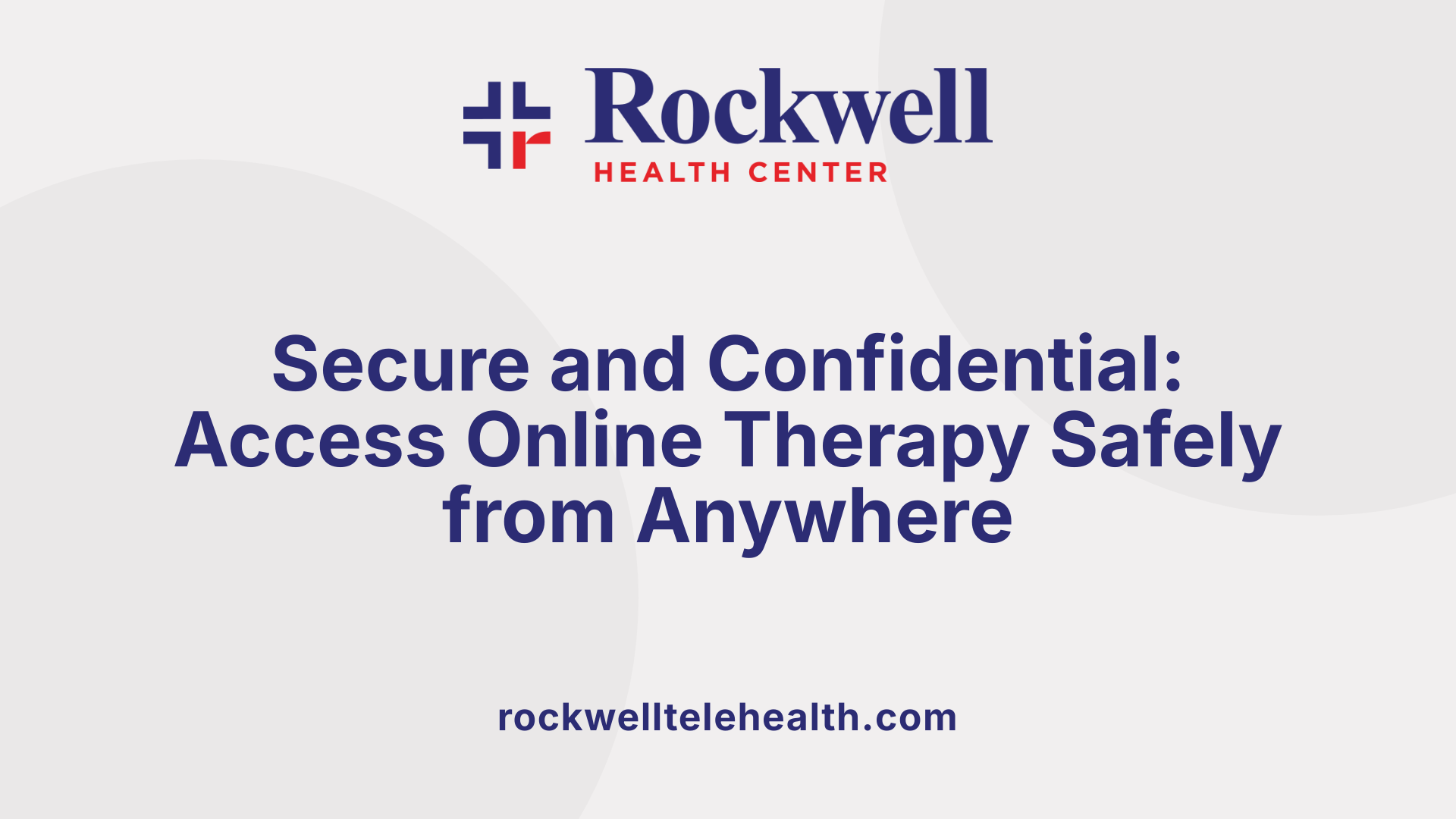
How does online therapy ensure security standards and healthcare compliance?
Online therapy platforms prioritize user privacy and data security by adhering to strict healthcare standards like HIPAA (Health Insurance Portability and Accountability Act). These platforms utilize advanced encryption methods to protect communication and personal information. Features such as secure login, data encryption during sessions, and confidential data storage help maintain compliance with legal requirements and safeguard user privacy.
How is privacy maintained during virtual therapy sessions?
Privacy in virtual therapy sessions is a top priority. Users are encouraged to choose private, quiet spaces where they won't be overheard. Online platforms often offer options for text, audio, and video sessions, allowing clients to select the mode that best suits their privacy needs. Additionally, platforms implement strict confidentiality policies, ensuring that conversations and data are protected from unauthorized access.
How accessible are these services for diverse populations?
Online therapy services are designed to be accessible for a wide range of populations. They accommodate different languages, provide features for individuals with disabilities, and offer flexible scheduling options to fit various lifestyles. Many platforms are sensitive to cultural differences and aim to reduce barriers such as mobility issues or geographical limitations, making mental health support more inclusive and widely available.
| Aspect | Details | Additional Considerations |
|---|---|---|
| Security Standards | HIPAA compliance, encryption, secure login | Ensures data protection and legal compliance |
| Privacy in Sessions | Private spaces, mode options (text, audio, video) | Confidential communication, flexible privacy setup |
| Accessibility | Multilingual support, disability accommodations, flexible hours | Broader reach, inclusive support for diverse users |
This focus on security, privacy, and accessibility underscores the importance of trustworthy online mental health services that respect user confidentiality while being easy to access for everyone seeking emotional support.
Addressing Common Concerns and Misinformation
Addressing Stigma and Accessibility Barriers
Many individuals hesitate to seek mental health support due to stigma surrounding therapy or concerns about accessibility. Online platforms like 7 Cups, Talkspace, and BetterHelp aim to reduce these barriers by providing confidential, anonymous, and round-the-clock access to care. With 24/7 virtual chat options, community forums, and scheduled support groups, these platforms make it easier for users from diverse backgrounds and locations to find help without the fear of judgment or logistical hurdles.
Furthermore, online therapy services often appeal to those with mobility issues, busy schedules, or those living in rural areas with limited local resources. This expanded access ensures that more individuals can obtain support tailored to their needs, breaking down traditional barriers to mental health care.
Ensuring Quality and Licensure of Therapists
One of the common concerns about online mental health services is related to the quality and credentials of the providers. Reputable platforms maintain strict vetting procedures to ensure all licensed therapists and counselors meet high standards. For example, BetterHelp employs licensed professionals such as psychologists, Licensed Marriage and Family Therapists (LMFT), Licensed Clinical Social Workers (LCSW), and Licensed Professional Counselors (LPC). Similarly, Talkspace matches clients with licensed providers based on a detailed online questionnaire, ensuring personalized and appropriate care.
Additionally, many providers continue to receive ongoing training and supervision, which helps maintain quality. Recognized awards and certifications, like the Healthcare System Design Innovation Award from Stanford Medicine X, further attest to their quality and innovation.
Guidance on Choosing a Suitable Platform
Selecting the right online therapy platform involves considering several factors. First, evaluate the types of support offered—whether you need individual therapy, couples, family, or specific approaches like CBT or DBT. Platforms like AbleTo provide structured programs rooted in science, focusing on emotional regulation and coping skills training.
Next, consider the format of sessions: do you prefer live video, phone calls, or asynchronous messaging? Most platforms, including Talkspace and BetterHelp, provide multiple options, allowing users to choose what best suits their comfort level and lifestyle.
Insurance acceptance and affordability are also important. While some platforms offer lower-cost plans—like 7 Cups's free chat or affordable membership options—others accept insurance or offer sliding-scale fees. Review each platform's policies and compare their features.
Privacy and confidentiality are crucial, especially in online contexts. Ensure the platform uses secure, HIPAA-compliant technology to protect your data.
Finally, read reviews and seek recommendations, such as endorsements from mental health experts or reviews by organizations like Verywell Mind, which have thoroughly tested these services. This research helps ensure that you select a reputable, effective platform suited to your emotional and mental health needs.
| Platform | Services Offered | Session Formats | Cost Range | Unique Features |
|---|---|---|---|---|
| 7 Cups | Peer support, counseling, self-help guides | Chat, scheduled groups, forums | Free; optional low-cost therapy | Anonymous, 24/7 access, AI counsellor Noni for immediate support |
| Talkspace | Individual therapy, couples therapy | Video, audio, messaging | $65–$99 per week | Personalized matching, licensed therapists, diverse therapeutic approaches |
| BetterHelp | Individual, couples, teen, family therapy | Video, messaging, phone | $65–$100 weekly | Large network of licensed therapists, flexible scheduling, confidentiality measures |
| AbleTo | Therapy, coaching, self-care tools | Phone, video | Pricing varies | Evidence-based programs, focus on emotional regulation, depression and anxiety help |
This comprehensive approach to utilizing online therapy aims to dispel misconceptions and guide individuals toward effective, accessible, and secure mental health support tailored to their specific needs.
Empowering Emotional Growth Through Virtual Support
Online therapy has revolutionized the way individuals access mental health care and develop vital emotional skills. By combining proven therapeutic approaches like CBT and DBT with innovative self-help tools and comprehensive support programs, virtual platforms empower users to build resilience, manage stress, and foster healthier relationships. As research continues to demonstrate their effectiveness and accessibility, online therapy stands as a cornerstone of modern mental health practice, guiding individuals toward greater emotional well-being and resilience.
References
- 7 Cups | Free Online Mental Health Support; Therapy ...
- Effective, Affordable Online Therapy & Counseling
- Virtual and Online Therapy & Coaching for You
- The Best Online Therapy, According to a Therapist
- DBT Online Therapy: Skills for Emotional Regulation
- Affordable Online Therapy & Counseling
- Emotion Control | Online Therapy & Counselling
- Online Mental Health Care That Caters to You | Cerebral ...
- Building Personal Resilience: Managing Anxiety and ...




















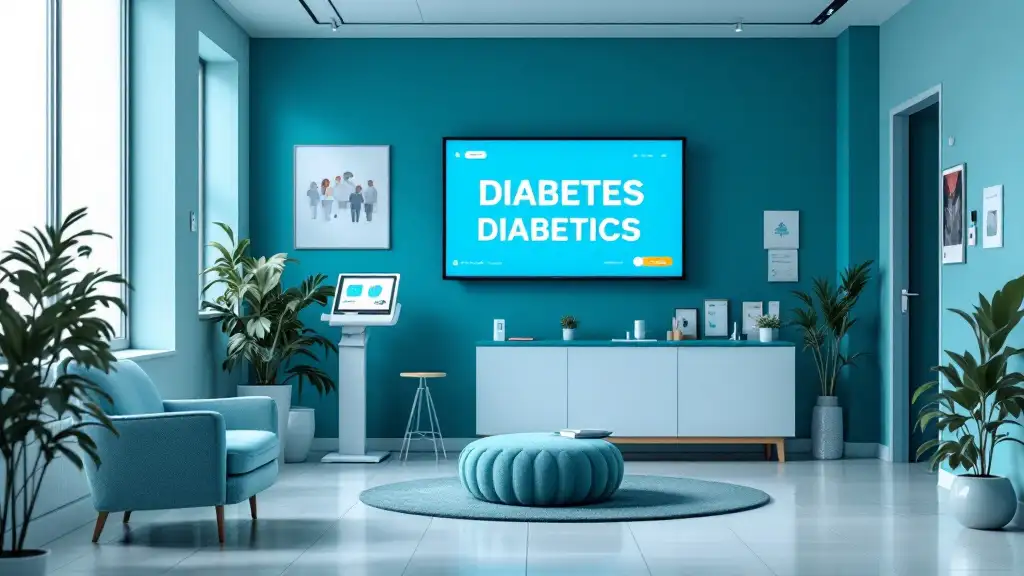
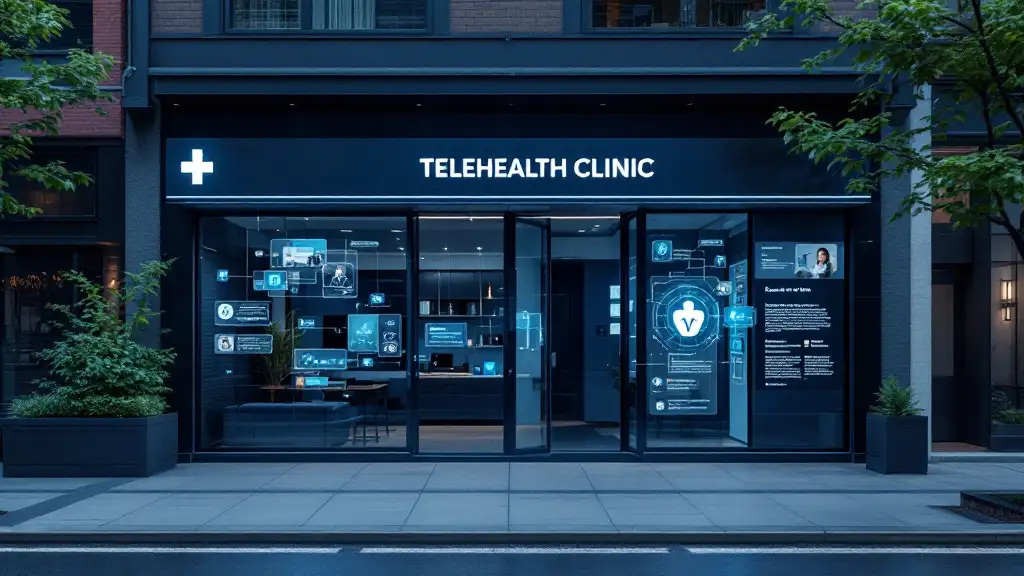


































































.png)